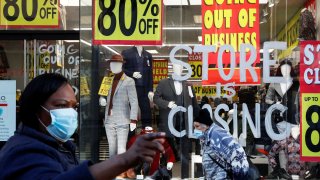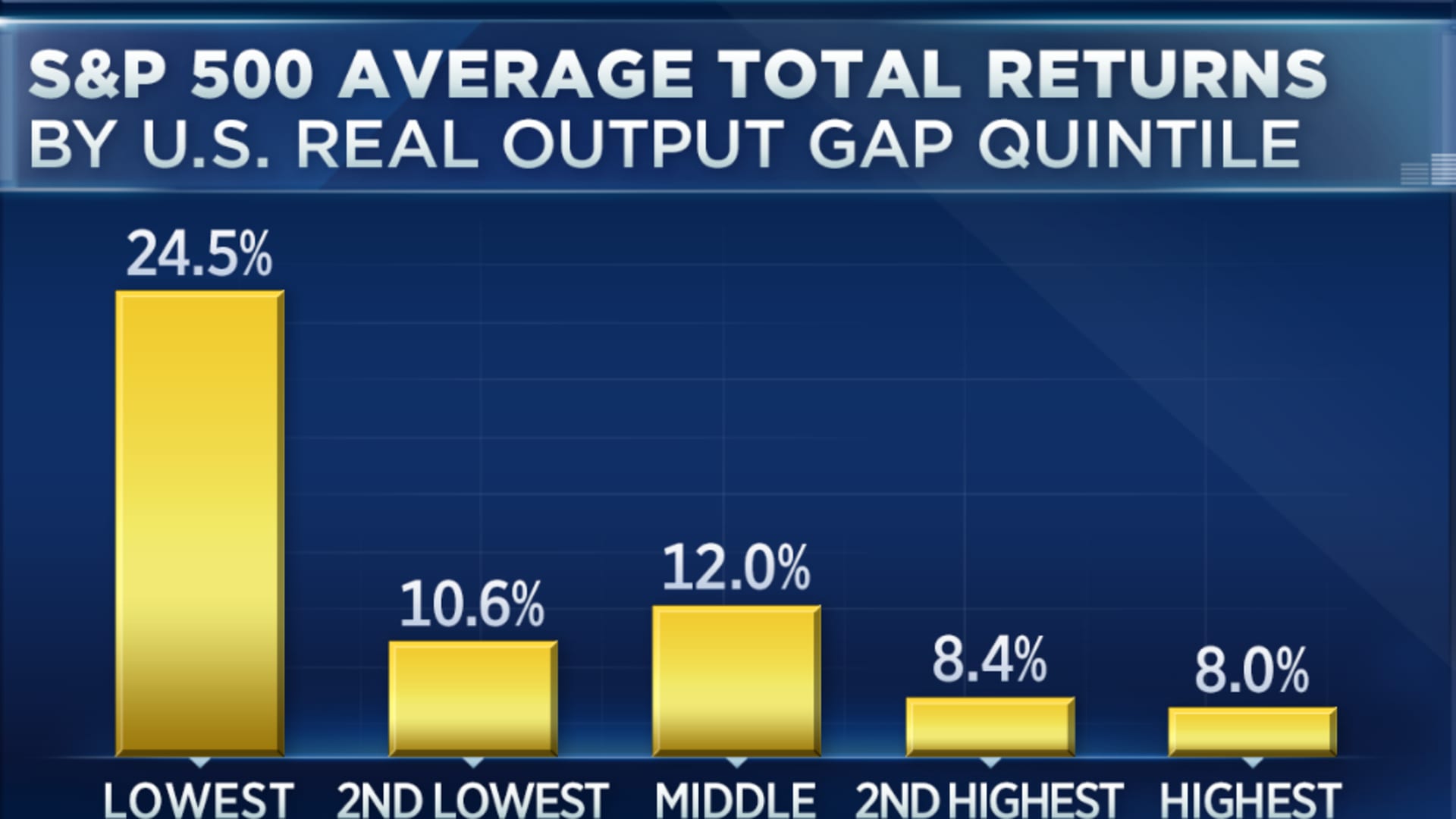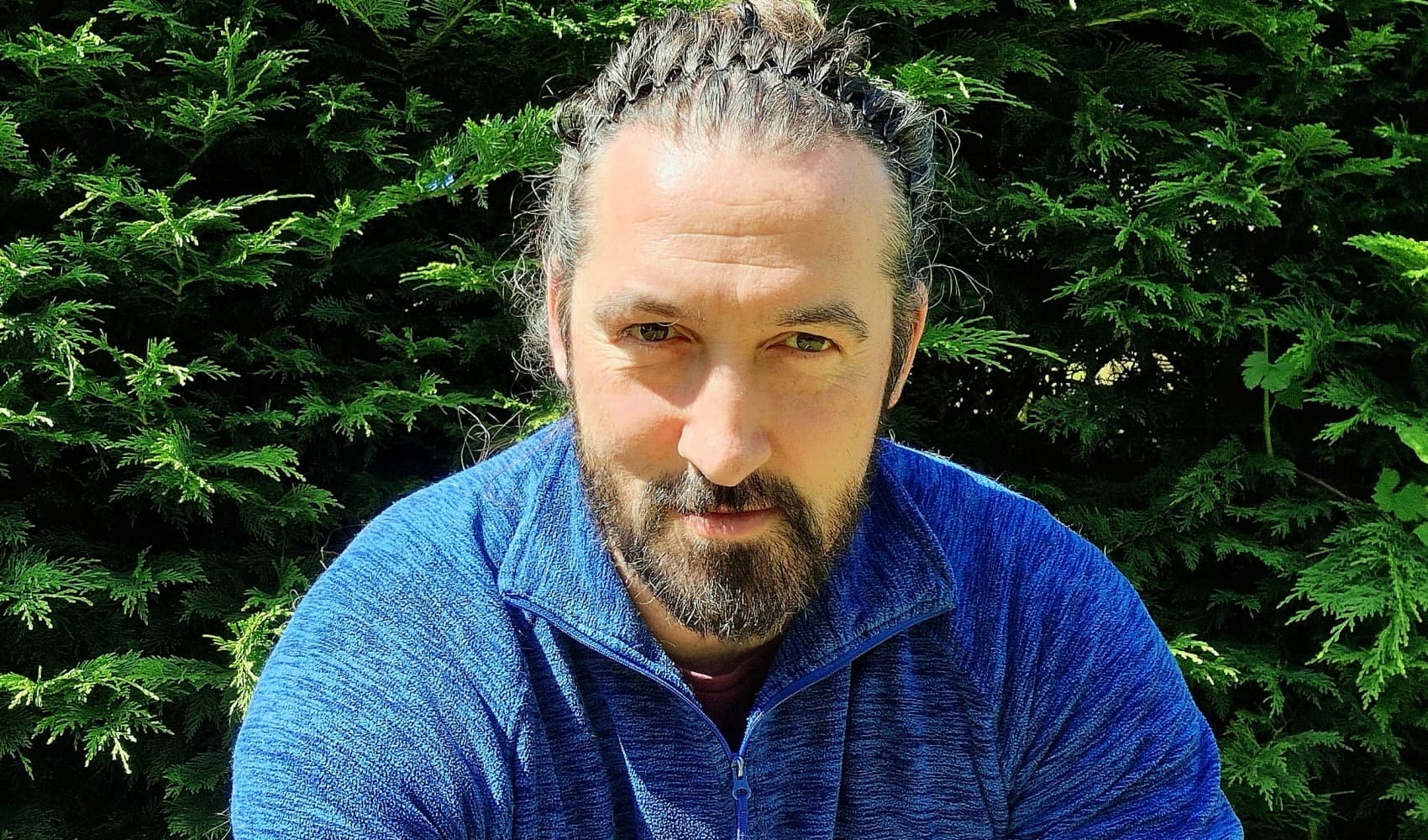
Vaccine breakthroughs from Pfizer and Moderna have kept hopes of a turn in the Covid-19 crisis high on Wall Street.
But, even once that has been tackled, Jim Paulsen, chief market strategist at the Leuthold Group, said the U.S. is in for another massive challenge – repairing a weak economy.
"The pandemic crisis created the biggest divot in the economy that we've ever had in the postwar era. The output gap – the difference between where actual GDP is from what it potentially could be if you had full employed all the resources at normal productivity – it fell to almost 11% at its largest. It has now improved a little bit as the third-quarter growth rate improved, but it's still at about 8% which is larger than almost any time in postwar history," Paulsen told CNBC's "Trading Nation" on Monday.

Therein lies opportunity, Paulsen said. According to his research, when the output gap is in the lowest quintile as it is now, the S&P 500 since 1950 on an annualized forward one-month basis has had 24.5% per-year returns – more than twice the average stock market gain.

"As bad as Covid is as far as a human tragedy and it's awful, what it's also done is created a very unique opportunity for investors to be able to invest in an environment which historically has been super good for the stock market mainly because we can improve that output gap," said Paulsen.
Money Report
To take advantage of that opportunity, he suggests being overweight equities and underweight alternative asset classes such as cash and bonds. Within the stock market, history points to small-cap stocks and cyclical sectors as big winners.
"They are far and away better than almost any other type of investment in the equity market when the output gap is this large. Small caps did almost 7% better than large caps when you're in the lowest quadrant, for example," said Paulsen.
Small caps are already showing signs of outperformance relative to the rest of the market. So far this month, the Russell 2000 has risen 15% compared with a nearly 11% gain for the S&P 500.
"Then, I'd try to avoid dividend yield stocks which do not do well coming out of the worst quadrant of growth. And also price momentum does not do well until you get back to a more normal output gap," he said.
And, while the pandemic and crisis is unprecedented, Paulsen is confident the U.S. economy can turn the corner and begin to mend.
"When you have this much excess capacity on Main Street, high levels of labor and capital and land unemployment, there is no way we're going to sit here and accept that," said Paulsen. "And every day we improve that, risk assets, in general, I think will continue to do well at least till we get back to some semblance of normality even if it's not exactly the same as it used to be."






